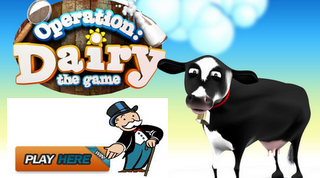Dairy farming

In a new report, Rethink Bovine TB - an independent research group says that the most effective way to reduce the economic impact of bTB is to stop the current bTB control programme. A shift away from prevention in cattle, whilst continuing with the regulation in milk and meat should provide adequate health protection at relatively modest costs, it says.
Defra’s stated reasons for the current policy are principally to protect human health, exports and animal welfare - reasons which the report says do not stand examination.
Animal-to-human transmission negligible
Aerosol transmission, the only probable route of human acquisition, occurs at inconsequential levels when milk is pasteurised, even when bTB is highly endemic in cattle. Furthermore, there is little evidence for a positive cost benefit in terms of animal health of bTB control. Such evidence is required; otherwise, there is little justification for the large sums of public money spent on bTB control in the UK.
Cattle infections
Infected cattle have little probability of developing the disease and seldom show symptoms during their (often short) economic lives. The principal animal welfare implication is not the disease but premature slaughter under the current ‘test and cull’ policy.
Under the current policy cattle are routinely tested, those that fail the test are slaughtered and severe restrictions on cattle movement are placed on the farm.
Skin tests or a blood test (gamma interferon test) are used. Serious concerns exist among scientists and farmers about the accuracy of the tests, while Defra goes as far as to admit the tests are ‘imperfect’.
Because of this, thousands of cattle are falsely condemned.
Whatever aspect is considered - farming profit, cost effectiveness for the taxpayer, animal welfare, human health, conservation or food security - the reports states that the current policy is a resounding failure.
Future options
Rethink Bovine TB says that only two viable options exist. The first is to increase the severity of the current policy. So instead of culling individual animals, complete herds would be depopulated, wildlife reservoirs would be dealt with and restocking of cattle delayed. Area movements would increase and cattle would be tested more frequently.
Alternatively, and favourably the report says that the government should accept that TB is not a significant risk to human health and that farmers know best what will work in their circumstances.
Under their proposal farms would be free to choose to vaccinate cattle and/ or various degrees of compulsory vaccination could be introduced (if vaccine available).
Milk would continue to be pasteurised and inspection at abattoirs would continue.
Farms would be free to continue routine testing and acquire herd TB free status or to choose vaccinated status, in response to market demand or farm preference.
Any animal showing actual symptoms of bTB would be tested and either slaughter, or in appropriate cases, could be isolated and treated.
Farmers would have the freedom to choose (within guidelines) the most suitable means for bTB control in their circumstances. This is how most animal health problems are successfully managed.
Concluding the report says that in addition to the savings to taxpayers, the saving to farmers in stress, anxiety and loss of production would be beyond calculation.
Assistant Farm Policy Adviser Helen Ross said: “Bovine TB is a terrible disease, that if not brought under control, will see thousands more cattle - and badgers – infected. From an animal health and welfare point of view this is simply not acceptable.
“Bovine TB is a notifiable disease which can be transmitted to humans, it is required by law that it is reported to the relevant authorities and therefore must be controlled. The current testing and slaughter policy reduces the opportunities for chronic disease to develop and therefore transmission to humans is prevented.
“If left unchecked, bovine TB would result in chronically sick animals being left on our farms. This has obvious knock-on effects; increased risks to the people working with the animals on farm, more and more animals unfit for the food chain, at a time when we’re being called upon to produce more food, and intolerable levels of disease on farm when farmers are working hard to improve biosecurity.
“In areas where there are high and persistent levels of bovine TB (vast areas of Devon, Cornwall, Gloucester, and the West Midlands) it is increasingly being found in other animals and livestock, including pet cats. We support the development of cattle vaccines but as a vaccine will never be 100 per cent effective in all cattle it is essential that this policy is retained.”






















